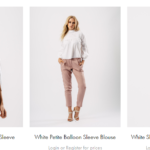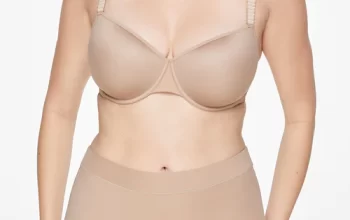Have you ever felt lost in the long aisle of shampoo and conditioner at the grocery store? It’s understandable. It can be difficult to choose the right hair care product for your hair type.
If you want to choose a De Lorenzo Shampoo, you need to think about the fact that your hair is as unique as you are. The one that makes your hair beautiful, shiny, and healthy can certainly be determined based on your hair type and needs.
To help you pick the ideal shampoo, we’ve discussed all the different types of hair and their needs in this article.
Selecting The Right Shampoo For Your Hair Type
Most of the hair care products you use are shampoos. It is therefore an important factor in determining whether you will achieve a healthy mane. If you choose the wrong shampoo, your hair can look dull and lifeless.
To determine which shampoo is right for you, you need to know more about your hair and scalp, and what kind suits you best.
A. Knowing Your Scalp
Your shampoo should first address your scalp’s needs if you want to effectively cleanse your crown. It is your scalp that houses the roots of your luxurious tresses. Therefore, a healthy scalp is essential for gorgeous tresses. As an example, you should pick up an oil-controlling shampoo and use a conditioner. If your hair ends up dry, use a conditioner to prevent the hair from drying out.
1. For Normal Scalp
You may be among the lucky few with a normal scalp if the sebaceous glands produce just the right amount of oil. Dandruff, excessive dryness, or excessive oil-deposition are common symptoms of a normal scalp. Therefore, you do not need to be concerned. Maintain the shine of your blessed possession with a shampoo that contains an even balance of detergents and conditioning agents.
2. Those with oily scalps
You should probably take a break from shampooing your scalp every day if it feels too oily or greasy. Moreover, remember to take care not to wash too much as this may cause dryness, which can result in your scalp secreting more oil. To see how it works for you, try spacing out your hair washes by a day or two. When choosing a shampoo for an oily scalp, keep these factors in mind:
- Choose shampoos that state they will ‘volumize’, ‘strengthen’, or ‘balance’ to combat the excess oil. If your hair is curly or frizzy, avoid moisturizing, hydrating shampoos.
- Pick the right formulation
Oily scalps are best treated with non-moisturizing preparations that remove excess oil. If you want to deep clean your hair, you can also use a clarifying shampoo from time to time. However, make sure you use it in moderation to avoid scalp irritation or dryness.
- Double it up
If you’re looking to get a better cleansing effect, you can combine two shampoos-one for your scalp and another for your hair length.
- Stop using conditioner
If your scalp is oily, do not use conditioner. It should only be used on your midshaft and ends.
3. For Dry Scalp
- An incorrect choice of shampoo will cause your scalp to feel dry, itchy, flannel-like, and flaky. When choosing a cleanser, keep the following points in mind to keep your scalp from scratching and causing more flaking:
- Keeping your scalp hydrated is as easy as choosing gentle products that promote moisture, hydration, or soothe frizz.
- To help moisturize your scalp and soothe a dry scalp, consider using shampoos containing tea tree oil or menthol.
- In case your scalp is moderately or severely dry, you can use Nioxin shampoo.
B. Know Your Hair
You should also think about the needs of your hair when picking a shampoo after you have learned how to take care of your scalp. There are a variety of shampoos on the market, each designed for a distinct hair type and its own requirements.
1. Curly hair shampoo
A curly hairstyle tends to be dryer and to tangle easier than a straight one. If you want to keep your curls pretty and manageable, choose a shampoo that hydrates deeply and moisturizes. If you want to use a cleansing conditioner that will cleanse and moisturize your hair, you can try those with a mild detergent.
2. Shampoo to give you straight, smooth hair
As well as keeping your hair moist, these shampoos reduce flyaways by containing moisturizers and smoothing agents.
3. For the dry and damaged hair
Natural dryness and brittleness could characterize the lengths of your hair. The hair may become more susceptible to damage if it has been coloured or straightened with chemical treatments. These treatments may cause your hair to become more sensitive to pollution or photodamage.
To nourish your damaged tresses, you should buy a hair strengthening shampoo that is enriched with proteins. You can preserve your colored hair with soybean extracts and amino acids. If you want to prevent dryness and color fading, you should also choose sulfate-free options.
4. Shampoo that volumizes
When you have very fine hair strands, they tend to become oily and limp easily. It is possible to add more body to your hair without weighing it down by using a gentle, non-creamy volumizing shampoo.
How Often Should You Change Your Shampoo?
Some midwives tell the story that your hair can get used to the ingredients in your shampoo, so you need to change it frequently in order to keep it healthy. Unfortunately, this myth is unsupported by science. There is no need to change your favorite shampoo if your hair is in good condition and you don’t have any specific problems with it.












